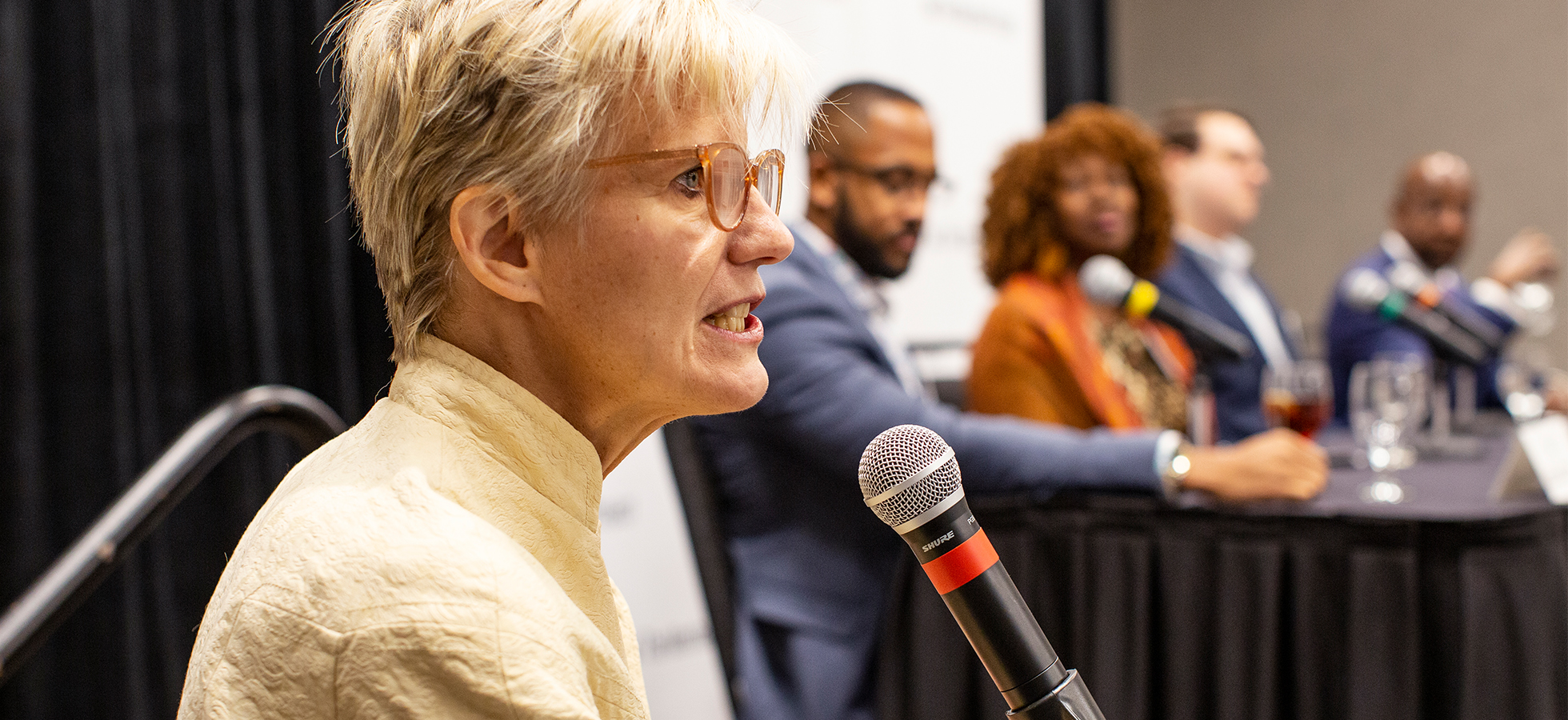Lecture: The Media’s Role in Mass Incarceration

President of Nonpartisan News Organization to Explore Question during Visit to Assumption
How did America become the most incarcerated country in the world, with more than 2 million people behind bars? One factor has been mostly overlooked: media coverage of crime paved the way for the explosive growth in our prison population.
Carroll Bogert, president of the Pulitzer Prize-winning news outlet, The Marshall Project, will explore the media’s responsibility for mass incarceration on Wednesday, January 22 at 7 p.m. in the Jeanne Y. Curtis Performance Hall on campus.
A Woodrow Wilson Visiting Fellow at Assumption this month, she will discuss how media coverage helped enable harsh sentencing policies, the prosecution of children as adults, and other practices that have filled America’s prisons to overflowing capacities.
Podcasts like Serial and the Netflix series When They See Us, focusing on people falsely convicted of crime, have lately helped focus public attention on these issues. The Marshall Project, founded five years ago, is a nonprofit media organization whose journalists report exclusively on criminal justice.
According to the American Civil Liberties Union, since 1970, the incarcerated population in the United States “has increased by 700 percent, with 2.3 million people in jail and prison today, far outpacing population growth and crime.” During her lecture, titled “The Media’s Influence in Creating and Challenging Mass Incarceration,” Bogert will address why the United States has the highest incarceration rate in the world and whether 40 years of tougher crime policies has really deterred crime. While scholars have studied social policies, public sentiments, policing tactics, and political strategies that fueled the growth of mass incarceration, what role has the mass media played? Bogert will discuss how media has both contributed to and challenged the explosive growth of the prison system.
Bogert is a journalist and activist with decades of experience. The Marshall Project “seeks to create and sustain a sense of national urgency about the U.S. criminal justice system” through “award-winning journalism, partnerships with other news outlets and public forums.” In addition, the organization’s mission states that it strives to “educate and enlarge the audience of people who care about the state of criminal justice.”
Bogert’s visit to Assumption is sponsored by the Council of Independent Colleges (CIC), which provides colleges and universities the opportunity to host a Visiting Fellow—prominent individuals in fields that span art, politics, business and nonacademic professionals—for a weeklong residential program, with the goal of enriching the campus community. During her week at Assumption, Bogert will visit sociology and criminology classes, and participate in a question-and-answer session with members of Assumption’s Worcester Institute for Senior Education (WISE) on Thursday, January 23 at 1 p.m. in Kennedy 112.
Bogert previously served as deputy executive director at Human Rights Watch, running its award-winning global media operations. She also spent 12 years as a foreign correspondent in Beijing, Hong Kong, and Moscow. She covered historical events such as the collapse of the Soviet Union and the 1989 Tiananmen Square protests, among others.
The lecture is free and open to the public.
